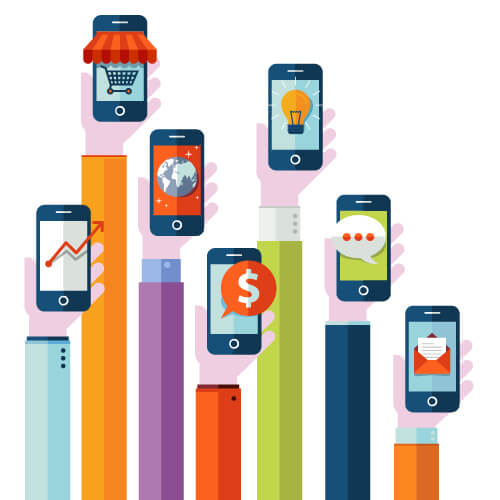How embracing SaaS could evolve your brand

As more and more small businesses move their day-to-day tasks online, brands have an opportunity to move into that space too. Not only can it evolve their services and positioning, it’ll also build stronger customer relationships.
The place to start is with what you already have. What would be a natural addition to your core offering? What might your customers need that they can’t get from you at the moment? This could be accounting and business planning software from a bank. But it could just as easily be IT support, storage capability and document transfer from a printer supplier.
Answering customer needs
By finding out what your customers need, then providing solutions, you show that you’re both listening and responding. We’ve talked about how you move customers over to cloud services in other posts. What’s key here is that, by starting from your place of expertise, these services become a natural extension of existing propositions and messaging. And because they’re designed to assist customers in everyday tasks, you step more into their everyday world, which opens up new opportunities to start new conversations.
Nailing the customer journey matters. Only once you’ve achieved that with your anchor services, and people are regularly using them, can you then build.
If we look at Amazon, for example, the company mastered online book buying. It had a highly functional website that was easy to navigate, delivery options to suit different situations, and a breadth of inventory that made it almost impossible not to find what you were looking for.
Becoming a trusted supplier
In essence: it delivered. And that meant it could sell almost anything because it became associated with a benefit rather than a product. Your customers should feel like your services are genuinely adding value to their working life – that way they’ll trust your recommendations, whatever they may be.
As you add new services, they then give you a reason to talk about your core products, especially if you’re able to integrate them. An example would be a telco that bundles existing products (mobile and broadband) with new services (web conferencing for example, or cloud storage). The messaging comes full circle.
Moving from selling to supporting
And by diversifying, your products will have a broader relevance for your customers, touching on different points of their day and their working life. You can then legitimately initiate ongoing conversations that reflect that relevance, which will be more about help and support than about selling a product. And you can take that conversation online, which is where more and more people want to transact.
You might even be able to create a positive story during difficult times and divert attention from your core services. An example comes from Barclays, which was one of many institutions hit by the financial crisis. Just as UK banks were getting a bad press, Barclays coincidentally launched Credit Focus, an online service that helps small businesses get paid on time and reduce the likelihood of bad debt. This was evidence of a big bank doing something to really help small businesses at a time when people really weren’t expecting it. And it generated a pleasing amount of good press.
If done well, SaaS can help drive growth for businesses. It can create new reasons to talk to people, it can move those conversations online, it can embed the brand in customers’ day-to-day lives. By doing that it will of course increase wallet share. But it will also mean the brand starts to stand for different things, like innovation, support, delivery, agility, and so on. This kind of evolution is hard to measure, but in today’s highly competitive world, it’s increasingly of value.
